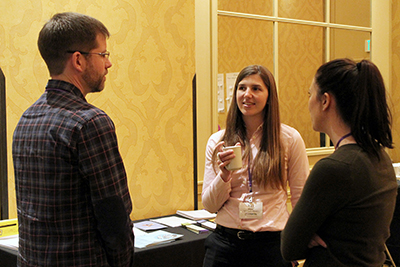Resources

The AccessEngineering website at contains
- information about project goals, objectives, activities, and project partners;
- evidence-based practices that support project goals and objectives;
- resources for students with disabilities; and
- educational materials for teachers and administration.
AccessEngineering maintains a searchable database of frequently asked questions, case studies, and promising practices related to how educators can fully include students with disabilities in computing activities. The Knowledge Base can be accessed by following the “Search Knowledge Base” link on the AccessEngineering website.
The Knowledge Base is an excellent resource for ideas that can be implemented in engineering programs in order to better serve students with disabilities. In particular, the promising practices articles serve to spread the word about practices that show evidence of increasing the participation and success of people with disabilities in engineering.
Examples of Knowledge Base case studies, promising practices, and questions include
- Conference Engagement via Robot: A Case Study in an Option for a Student Unable to Travel
- Distance Learning: A Case Study on the Accessibility of an Online Course
- Emerging Leaders Program: A Promising Practice in Placing College Students with Disabilities in Challenging Internships
- Hosting a Panel of Students with Disabilities: A Promising Practice in Raising Awareness of Disability Issues
- Are electronic whiteboards accessible to people with disabilities?
- Are there scientific and graphing calculators that can be used by students who are blind?
Individuals and organizations are encouraged to propose questions and answers, case studies, and promising practices. Contributions and suggestions can be sent to doit@uw.edu.
For more information on AccessEngineering, universal design, and accessible STEM education, review the following websites and brochures:
- Learn more about and get involved with AccessEngineering.
- Find more information on universal design by visiting the Center for Universal Design website.
- Consult The Faculty Room for resources specifically designed for faculty.
- To learn how to create accessible engineering labs, departments, and makerspaces, review the following publications: